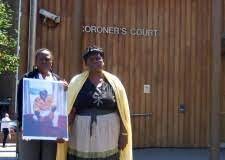
Kessie Moyo with a picture of her son Godfrey Moyo
“A mother is a mother for as long as she lives.”
Around the world, mothers gather in parks, gardens, public open spaces. As they sit and watch and talk, they gather and create comfort, wisdom, knowledge, strength, pleasure, laughter, sighs, touch, love, safety. They create spaces where truth can be spoken and heard. This is not sentimental or romantic. It is the news of the day.
Parvin Fahimi is Sohrab Arabi’s mother for as long as she lives.
Sohrab Arabi, a 19 year old student, “was reportedly killed on June 15, when a member of Iran’s ideological basiji militia opened fire on a crowd of protesters close to central Tehran’s Azadi Square, according to his aunt Farah Mohamadi, who was informed of his death by security forces.”
Fahimi went looking for her son. She went to the prisons, she went to the courts, she went to the hospitals, she went to the morgue. Then, on Saturday, July 11, 26 days later, Parvin Fahimi “was finally called in by officials and asked to identify her son in several photographs of corpses.” He had been shot.
She went looking from place to place to place, from face to face to face, for her son.
Taraneh Mousavi was also a young person in Iran. On Friday, June 19, she went to the Ghoba Mosque, in Tehran, to hear a sermon on the post-election `martyrs’. She was arrested. Reports suggest she was tortured, raped, burned to death. It’s hard to confirm. What isn’t in dispute: Taraneh Mousavi was arrested and disappeared. “Taraneh, whose first name is Persian for “song”, disappeared into arrest. Weeks later…her mother received an anonymous call from a government agent saying that her daughter has been hospitalized in Imam Khomeini Hospital in the city of Karaj, just north of Tehran — hospitalized for `rupturing of her womb and anus in…an unfortunate accident’. When Taraneh’s family went to the hospital to find her, they were told she was not there.”
Taraneh Mousavi’s mother is Taraneh Mousavi’s mother for as long as she lives.
The Mourning Mothers, the Mothers of Laleh Park, gather every Saturday in public parks, such as Laleh Park in the heart of Tehran, from 7 – 8 pm, the day and hour in which Neda Aghasoltani was killed.
The world is too full with Mourning Mothers.
Kessie Moyo is Godfrey Moyo’s mother for as long as she lives.
Godfrey Moyo was from Zimbabwe and suffered from epilepsy. On January 3, 2005, he was awaiting trial, at Belmarsh prison in the UK, when he suffered a seizure, followed by a behavioral disturbance, in which he attacked his cellmate and struggled with guards. He was taken out of his cell, thrown to the floor, constrained and controlled, during which he suffered two more seizures. Unconscious, he was taken to the intensive care cell and dumped, kneeling against a bed. Then he was injected with a sedative and died, 20 minutes later.
Four and a half years later, an inquest was finally held, from June 22 to July 6, 2009. This story brings together disability, race, nation, class into one terrible stew. And it conjures the Mourning Mothers.
Kessie Moyo, Godfrey Moyo’s mother, lives in Zimbabwe. In 2005, she received a six-month visa to attend the funeral and inquest, the inquest which wouldn’t occur for another four and a half years. When Mrs. Moyo applied for an extension, she was denied. Due to “very compelling family reasons”, Kessie Moyo stayed in England until 2007, only then returning to Zimbabwe. When at last the inquest date was announced, she was denied a visa. Why? She had overstayed the earlier one, and those family reasons didn’t matter. Also, since Zimbabwe is a humanitarian crisis site, Kessie Moyo would have no reason to return. There’s no logic like State logic.
Finally, the High Court [a] granted her a visa and [b] forced the UK Border Agency to expedite the processing. She barely arrived in time to sit with her daughter, Godfrey’s sister, Lomaculo Moyo, and listen to the guards describe her son as `a smashing lad’. She barely arrived in time to weep for her murdered son.
Kessie Moyo is Godfrey Moyo’s mother for as long as she lives.
Marta Servin lives in Koreatown, in Los Angeles, and she is the mother of three children. She is their mother for as long as she lives.
Koreatown, located in the center of Los Angeles, is the most densely populated area of the city. Mostly Koreans and Latin@s. Ten years ago a group of women started a community garden, Francis Street Community Garden. Small in size, huge in value. Now, “every day at about 5 p.m., women from the neighborhood gather at the garden to drink coffee and tea, cook spontaneous meals and talk for hours as the sunlight fades and neon signs begin flickering on in neighboring strip malls. They celebrate birthdays together with colorful pinatas and paper flowers and welcome newcomers to the neighborhood. Their children play and chase after the free-roaming roosters, hens and chicks.”
Marta Servin is one of those women. She came to help the clean up and never left. Mothers and daughters gather, in their garden, in their space. They are the Morning Mothers. One day, I hope the Mourning Mothers, those of Iran, those of Zimbabwe, those of anywhere else, might become the Morning Mothers as well, because, you know, a mother is a mother for as long as she lives.